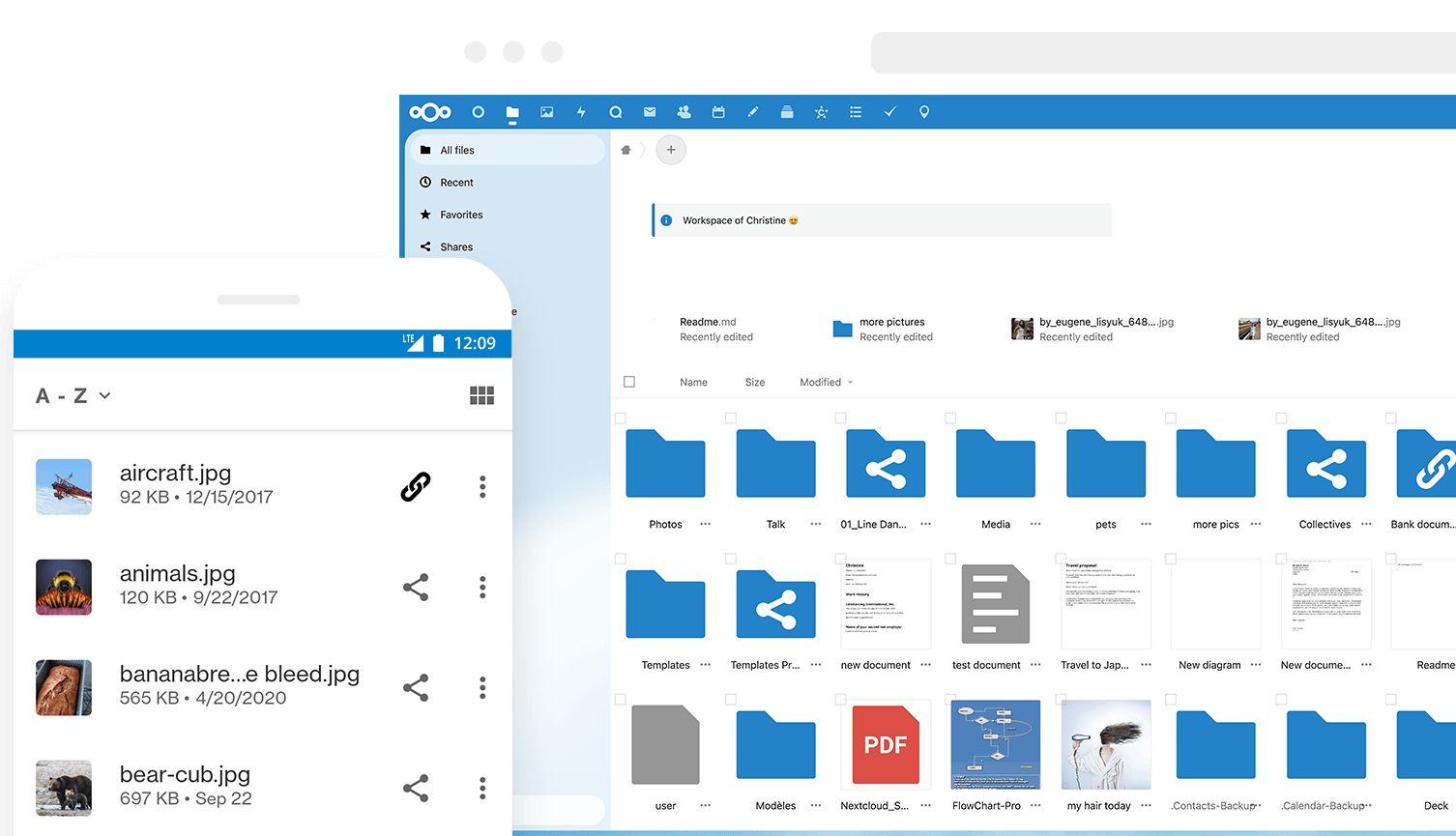The open source email landscape saw a significant development recently with the merger of Roundcube, the renowned webmail client, with Nextcloud, the leading content collaboration platform. This partnership brings together two pioneers in privacy-focused, decentralized software solutions and marks the beginning of a new chapter in self-hosted email.
A Brief History of Roundcube and Nextcloud
Roundcube is a multilingual IMAP email client with a focus on providing a user-friendly interface with advanced functionality. Since its inception in 2005, it has gained widespread popularity for its feature-rich environment including MIME support, address books, folder management, message search, and spell-checking.

More importantly, Roundcube has established itself as a leader in email security and privacy protection with robust capabilities like PGP encryption, XSS resistance, and brute force protection. Trusted by prestigious institutions like Harvard University, the European Commission, and the Indian government, Roundcube is the preferred choice for highly regulated sectors and privacy-conscious users.
On the other hand, Nextcloud was founded in 2011 by Frank Karlitschek with a mission to provide open and self-hosted alternatives to proprietary cloud services. Starting with a file sync and share application, Nextcloud has expanded into a full-fledged content collaboration platform today, offering solutions for file hosting, productivity tools, communication, and beyond.

Like Roundcube, Nextcloud prioritizes user empowerment, data ownership, and digital autonomy through its strong focus on privacy, decentralization, and open governance. Over the past decade, it has grown into one of the most widely deployed content collaboration platforms globally across personal, commercial, and government use cases.
Why the Merger? Synergies between Roundcube and Nextcloud
While Roundcube and Nextcloud have matured as independent projects serving different but overlapping needs of users, their merger creates new synergies that can strengthen alternatives in this space:
Aligned Vision - Both projects share the ideology that decentralized, user-controlled open source software is critical as an independent alternative to proprietary services centralizing user data and tools.
Expanded Capabilities - By joining the Nextcloud ecosystem, Roundcube gains better integrations and an opportunity to explore new features spanning file sharing, calendaring, contacts and more through Nextcloud apps.
Development Support - Nextcloud will invest in Roundcube's growth by accelerating development, integrating communities, and potentially hiring new contributors to maintain and improve the popular client.
Collaborative Efforts - The teams can now consolidate marketing, support, and other operational efforts to develop complementary rather than competing solutions and present a united front.
User Experience - With tighter product integration, users get a consistent experience across self-hosted collaboration and communication needs from a single platform.
Governance Model - Nextcloud's established open governance fosters Roundcube's long term sustainability and evolution through community participation.
Therefore, while staying independent offerings, the merger opens up synergies that can strengthen both projects in advocating for self-hosted, privacy-centric technology alternatives.
Impact and Opportunities from the Merger
This collaboration has wider implications beyond the individual projects:
Countering Monopolies - As a formidable combination, Roundcube and Nextcloud can better challenge dominant players centralizing user data and locking communities into proprietary ecosystems.
Inspiring New Developers - Nextcloud's community-focused approach and Roundcube's broader development support can galvanize new talent towards better open source software development.
Empowering Users - With accelerated progress, users gain improved tools to take back control of digital lives from large corporations through secure, self-managed technologies.
Interoperability Boost - By exposing standard APIs, the projects can inspire greater compatibility between decentralized applications and protocols, strengthening an independent digital infrastructure.
Advocating for Reforms - Together, their voices will carry more weight in influencing technology policy and regulations favoring individual rights, interoperability, and fair market practices.
Collaborations ahead - This new alliance paves the way for Roundcube and Nextcloud to explore partnerships with other open organizations as well, for further progress.
Therefore, while the initial impact will be felt within the communities, over the long run this merger establishes a stronger foundation for individual empowerment, independent innovation and decentralized alternatives online.
Reception and Future Plans
Nextcloud made the official announcement on 29th November 2023 of Roundcube joining its ecosystem through a blog post and press release. Unsurprisingly, the announcement has been met with enthusiasm from users and the open source community at large. Founders of both projects consider this partnership a natural stride that builds upon shared values.
In his statement, Nextcloud CEO Frank Karlitschek highlighted:
Roundcube founder Thomas Brüderli echoed similar sentiments:
In the immediate future, Nextcloud aims to invest in Roundcube through hiring new developers, supporting community growth, improving integrations and exploring synergies. At the same time, Roundcube will continue evolving independently based on its user requirements while benefiting from the development momentum.
Some potential developments flagged include better single sign-on options, calendar and contact book integration with Nextcloud, bridging user profiles and improving the overall experience. Naturally, over the long run, the scope could expand to new domains once basic integration is stabilized.
Both teams are focused on synergizing their capabilities rather than merging products or organizations. This balanced approach will allow each offering to thrive on its own strengths through collaborative progress, setting the stage for a new wave of innovation.
A Welcoming Change for Self-Hosters and Users Alike
The Roundcube-Nextcloud merger is particularly encouraging for self-hosting service providers and users focused on privacy and control. More broadly, the integration of a prominent email client into the broader Nextcloud ecosystem sets the blueprint for an evolved self-hosted collaboration and communication experience.
Users now have access to an integrated productivity environment secured by the community through an open and transparent model. This upholds individual digital autonomy, strongly valued by the likes of academic institutes, businesses and government entities relying on Roundcube.



